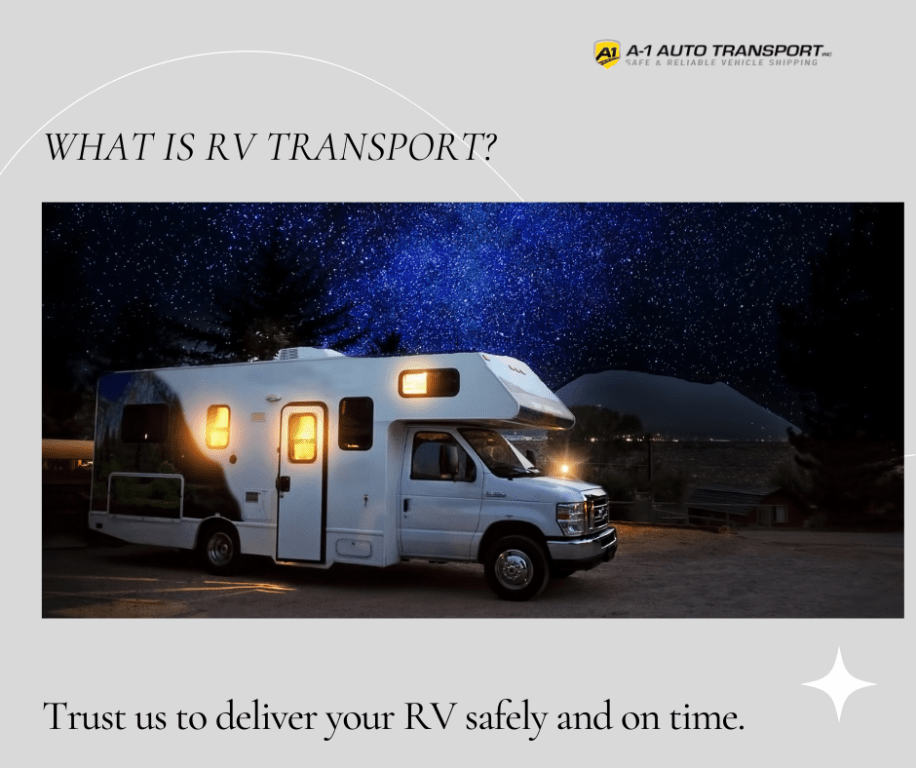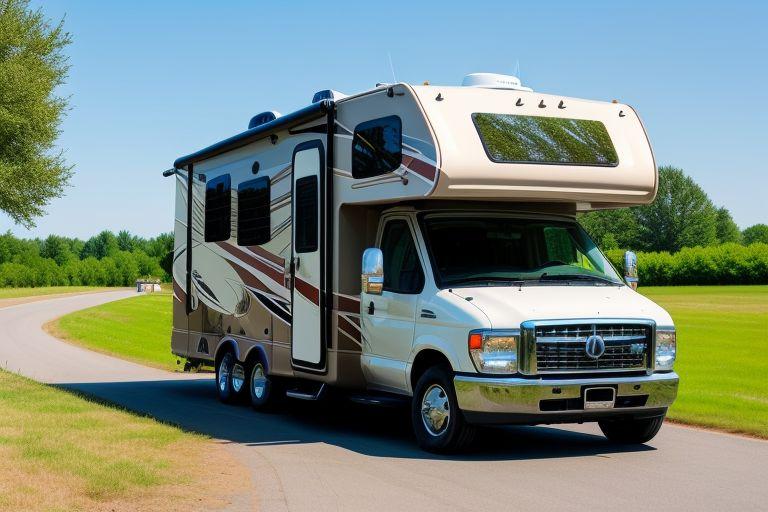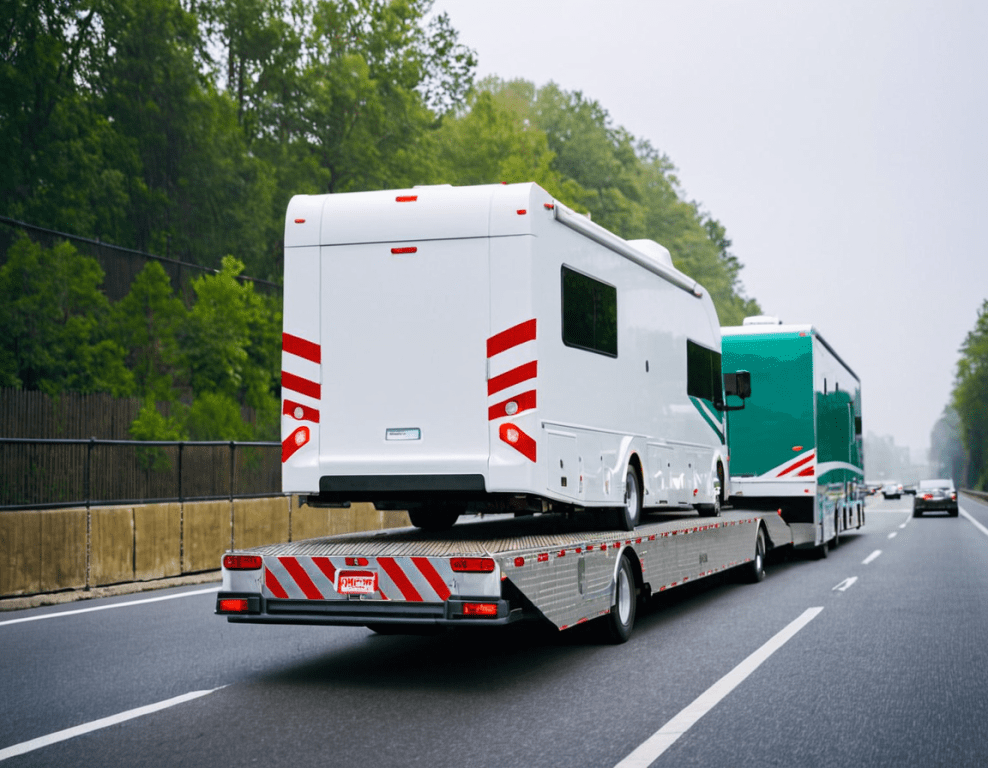
RV transport involves moving recreational vehicles (RVs) from one location to another, ensuring they reach their destination safely and efficiently. This service is crucial for RV owners who are relocating, purchasing a new RV from a distant seller, or sending their RV for repairs. Understanding "what is RV transport" helps in appreciating the complexities and necessities of this service. RV transport services handle the logistics, ensuring your vehicle is transported without damage. Whether you're moving across the country or just a few states away, A professional RV transport companies ensure a smooth and hassle-free experience.
Types of RVs and Their Transportation Needs
Recreational vehicles come in several types, each with unique transportation needs:
- Motorhomes: These self-contained units can be driven directly to their destination. However, using RV transport services ensures they arrive without wear and tear. Professional drivers handle motorhomes with care, ensuring they reach safely.
- Travel Trailers: Towable units that require a towing vehicle for transport. RV transport companies offer RV towing services to move these trailers securely.
- Fifth Wheels: Large trailers attached to a special hitch in the bed of a pickup truck. Due to their size and weight, professional RV haulers are essential for safe transportation.
- Camper Vans and Truck Campers: Smaller RVs that can be driven or loaded onto a truck. While they might seem easy to move, using RV transport services ensures they're transported with care, preventing potential damage.
Each type of RV has specific requirements for transport, depending on its size, weight, and structure. Professional RV transport companies have the expertise and equipment to handle all these variations, providing peace of mind to RV owners.

Methods of RV Transport
There are several methods to transport RVs, each with its advantages and disadvantages:
- Drive-Away Service: A professional driver drives the RV to the destination. This method is suitable for motorhomes and camper vans. It reduces the need for towing and ensures the RV is handled by experienced drivers. However, it may add mileage to your RV, which is something to consider when opting for this method.
- Tow-Away Service: The RV is towed by a professional driver using a specialized vehicle. This method is ideal for travel trailers, fifth wheels, and other towable RVs. RV transport companies offering tow-away services ensure the RV trailer is securely attached and transported safely.
- Flatbed Service: The RV is loaded onto a flatbed truck for transport. This method is suitable for all types of RVs, especially for long-distance transport. It protects the RV from road hazards and wear and tear. Flatbed service can be more expensive but is often the safest option for transporting high-value RVs.
- Enclosed Transport: The RV is transported in an enclosed trailer, protecting it from weather and road conditions. This method is the most secure and is ideal for high-end or vintage RVs that need extra protection. Enclosed transport is the most expensive method but offers maximum safety.
Choosing the right method depends on your RV type, the distance of transport, and your budget. RV transport costs vary based on these factors, and consulting with RV transport companies can help you determine the best option for your needs.
Choosing the Right Transport Method for Your RV
Selecting the appropriate transport method for your RV is essential for ensuring it arrives safely and in good condition. Here are some factors to consider:
- Type of RV: The type of RV you own greatly influences the transport method. For instance, motorhomes might be best driven by professional drivers, while travel trailers and fifth wheels often require tow-away services or flatbed trailers.
- Distance: The distance your RV needs to travel is a critical factor. For short distances, drive-away services might be sufficient. However, for cross-country moves, flatbed or enclosed transport offers better protection.
- Budget: Your budget will impact your choice. While enclosed transport provides maximum security, it is also the most expensive option. Tow-away and flatbed services can be more affordable alternatives.
- Condition of RV: The age and condition of your RV should also be considered. Older or more fragile RVs might benefit from the added protection of enclosed transport or flatbed trailers.
- Timeline: If you need your RV transported quickly, some methods may be faster than others. Discussing your timeline with transport companies can help you choose the best option.
By assessing these factors, you can select the most suitable method for your recreational vehicle, ensuring a smooth and hassle-free transport experience.
Preparing Your RV for Transport
Proper preparation of your RV is crucial for safe and secure transport. Here are the essential steps to prepare your recreational vehicle for shipping:
- Clean Your RV: Remove any dirt and debris from the exterior. This makes it easier to inspect for damage before and after transport.
- Secure Loose Items: Inside the RV, secure or remove any loose items to prevent damage during transit. Cabinets, drawers, and doors should be locked or fastened.
- Check Fluid Levels: Ensure that all fluids (oil, coolant, transmission fluid) are at appropriate levels. Address any leaks to avoid issues during transport.
- Disconnect Utilities: Disconnect any propane tanks, water lines, and electrical connections. This is a safety measure to prevent accidents.
- Inspect Tires: Check the tire pressure and overall condition of your RV's tires. Properly inflated and good-condition tires are essential for safe towing or transport.
- Document Condition: Take photos of your RV from all angles. This documentation will be useful for insurance purposes in case any damage occurs during transport.
- Remove Personal Belongings: Take out any personal items from the RV. Transport companies are not responsible for personal belongings, and they can shift during transit.
By following these steps, you ensure that your RV is ready for transport and reduce the risk of damage during the journey.

Costs Involved in RV Transport
Understanding the costs involved in RV transport is vital for budgeting and planning. Here’s a breakdown of the factors influencing RV hauling costs:
- Distance: The farther the distance, the higher the cost. Long-distance transport requires more fuel and time.
- Type of RV: Larger and heavier RVs, like motorhomes and fifth wheels, typically cost more to transport due to the need for specialized equipment.
- Transport Method: The method of transport significantly affects the cost. Drive-away services might be cheaper but add mileage to your RV. Flatbed and enclosed transport offer more protection but at a higher price.
- Season and Demand: The time of year can influence prices. Peak travel seasons might see higher costs due to increased demand for RV shipping services.
- Condition of RV: If your RV is inoperable or requires special handling, this can add to the cost. Transport companies might charge extra for loading and unloading non-operational RVs.
- Insurance: Comprehensive insurance coverage for your RV during transport is an added cost but essential for peace of mind.
To get an accurate estimate, it's best to request quotes from several RV transport companies. This way, you can compare services and prices to find the best option for your needs. Understanding these factors helps in planning your RV transport budget effectively.
Hiring a Professional RV Transport Service
Hiring a professional RV transport service offers numerous benefits and ensures your RV is handled with the utmost care. Here’s why you should consider professional services:
- Expertise: Professional drivers have the experience and knowledge required for transporting RVs safely. They understand the complexities of maneuvering large vehicles and can navigate various road conditions effectively.
- Safety: Transport companies use specialized equipment and techniques to secure your RV during transit. This reduces the risk of damage and ensures that your vehicle arrives in the same condition as when it was picked up.
- Convenience: Hiring a professional service means you don't have to worry about the logistics of moving your RV. The transport company handles all aspects of the process, from pickup to delivery, saving you time and effort.
- Insurance: Reputable transport companies offer insurance coverage, protecting your RV against potential damages during transport. This gives you peace of mind knowing that any unforeseen incidents are covered.
- Efficiency: Professional services can transport your RV more quickly and efficiently than you might be able to on your own. They have the resources and personnel to ensure timely delivery.
When selecting a professional RV transport service, look for companies with good reviews, proper licensing, and comprehensive insurance coverage. This ensures that you are choosing a reliable and trustworthy provider for transporting your RV.
Insurance and Safety Considerations
When it comes to transporting your RV, insurance and safety are paramount. Here’s what you need to know:
- Insurance Coverage: Ensure that the transport company provides adequate insurance coverage for your RV. This coverage should protect against damages that might occur during transit. Verify the details of the insurance policy and understand what is covered and what is not.
- Safety Measures: Professional transport companies follow strict safety protocols when handling RVs. This includes using appropriate equipment, such as flatbed trailers or secure towing mechanisms, to ensure your vehicle is transported safely.
- Driver Expertise: Professional drivers are trained to handle various types of RVs, from motorhomes to travel trailers. Their expertise in navigating different terrains and conditions ensures that your RV is in safe hands.
- Pre-Transport Inspection: Before transporting, a thorough inspection of your RV is conducted to document its condition. This includes checking fluid levels, tire pressure, and securing any loose items inside the RV. Having a clear record of the RV’s condition helps in the event of any insurance claims.
- On-Road Safety: Transport companies follow regulations and guidelines for on-road safety. This includes adhering to speed limits, performing regular vehicle maintenance, and ensuring that the transport vehicle is in excellent condition.
By prioritizing insurance and safety considerations, you can ensure that your RV is transported securely and with minimal risk. Always choose a transport company that emphasizes these aspects to provide a worry-free transport experience.

Conclusion
In the world of RV life, professional RV transport services play a crucial role in ensuring the safe and efficient movement of recreational vehicles. Understanding the different methods and preparations involved helps in choosing the right service for your needs. Professional transport companies offer expertise, safety, and convenience, making the process hassle-free. Proper insurance coverage and safety measures provide peace of mind, protecting your investment during transit. By selecting a reliable transport company, you can enjoy your RV adventures without worrying about the logistics of moving your vehicle from one place to another.
Trust A1 Auto Transport for all your RV transport needs. With expert drivers, specialized equipment, and comprehensive insurance, we ensure your RV is transported safely and efficiently. Contact us today for a quote and experience hassle-free, professional RV transport services. Start your journey with confidence!






 Share on Facebook
Share on Facebook Share on LinkedIn
Share on LinkedIn Share on Twitter
Share on Twitter




 Google
Google  Instagram
Instagram  Trustpilot
Trustpilot 



